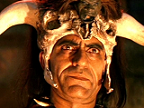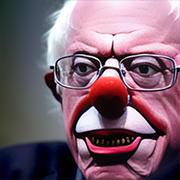|
Lord Cyrahzax posted:I do like the Federalists, but I hate Britain far more. Let's show those tea-slurpers what for! Let's show them what American arms and resolve can do, show them that this is our continent! oh poo poo i really should have voted for madison out of pure francophilia oh well
|
|
|
|

|
| # ? May 10, 2024 07:54 |
|
Empress Theonora posted:oh poo poo i really should have voted for madison out of pure francophilia It's better to keep the United States out of the 1812 war than to hump France, because the support of the United States means poo poo-all nothing either way once Napoleon is a thing.
|
|
|
|
Lord Cyrahzax posted:I do like the Federalists, but I hate Britain far more. Let's show those tea-slurpers what for! Let's show them what American arms and resolve can do, show them that this is our continent!  JOHN BULL: "Stop...Brother Jonathan, or I shall fall with the loss of blood -- I thought to have been too heavy for you -- But I must acknowledge your superior skill -- Two blows to my one! -- And so well directed too! Mercy, mercy on me, how does this happen!!!" JAMES MADISON: "Ha-Ah Johnny! you thought yourself a "Boxer" did you! -- I'll let you know we are an "Enterprize"ing Nation. and ready to meet you with equal force any day." Wrap it up, Federafailures, Madison has got this fight in the bag. QuoProQuid has issued a correction as of 03:28 on Dec 29, 2015 |
|
|
|
TEAYCHES posted:It's better to keep the United States out of the 1812 war than to hump France, because the support of the United States means poo poo-all nothing either way once Napoleon is a thing. Napoleon has been a thing since he became First Consul in 1799. And how! I wish him luck and triumph in his glorious struggle against Britain's Coalitions of reactionaries! A struggle we must do our part in!
|
|
|
|
Lord Cyrahzax posted:I do like the Federalists, but I hate Britain far more. Let's show those tea-slurpers what for! Let's show them what American arms and resolve can do, show them that this is our continent! This but, for Clinton. Have you seen these mewling loyalists in Canada? They deserve to be part of our strong American nation. While I am generally in favor of peace, I now believe that the would be lords of America fear a standing army because it may become an army of the people, that will turn against them with enough power. We will free the slaves, kill the slavers and lords and be equals! This is the glory and enlightenment of Man!
|
|
|
|
Lord Cyrahzax posted:I do like the Federalists, but I hate Britain far more. Let's show those tea-slurpers what for! Let's show them what American arms and resolve can do, show them that this is our continent! Agreeing with this post and putting in my vote for Maddy, the country will not survive long if we don't push back against those tyrannical limey jackasses.
|
|
|
|
QuoProQuid posted:Thank you. I love reading the comments in the thread as posters try to convince one another to support a candidate. I'm sure there will be some interesting discussions as the Federalists die out and elections become more contentious. And thank you, for this thread led me to finally memorize "His High Mightiness, President of the United States and Protector of Their Liberties." I'm a little tempted to pull out an Adams-proposed title if ever I am in a position to speak to a sitting or former POTUS. Also, I have to say, I hadn't realized what a mess of contrary positions I staked out when I determined my position in these early elections. Pro Federalist, pro France, anti England, anti Slavery. Right now, my lingering hatred of the Southern motherfucking Democratic-Republicans is contending against my desire to conquer Canada, drive the British off our continent, and take their valuable fur trade. (My US History teacher was a Canadian.) A Clinton/King ticket, with Madison as Secretary of War ... would make no sense, honestly, but I'm not sure how to accommodate my desires. Not that I get the choice, thank you Jefferson.
|
|
|
|
Im a hippie pacifist and also wanna abolish slavery so Clinton it is! Edit: I also wanna thank QuoProQuid for keeping up with this, I'm sure it's a daunting task so I wanna say I totally appreciate it! RagnarokAngel has issued a correction as of 17:26 on Dec 29, 2015 |
|
|
|
Thank you all for voting. DeWitt Clinton has achieved victory. His running mate, Jared Ingersoll will serve alongside him. With the British preparing to march on the Capital, though, it’s unclear whether His Elective Majesty will govern over anything except ash. Though the situation remains dire, Americans retain hope that Clinton will guide the military toward peace. If this country is to survive, a strong, national army will be necessary.   RESULTS BREAKDOWN Most Popular Ticket: DeWitt Clinton / Jared Ingersoll (Democratic-Republican/ Federalist) - 36 votes (48.6%) Rufus King / William Richardson Davie (Federalist) - 27 votes (36.5%) James Madison / Elbridge Gerry (Democratic-Republican) - 11 votes (14.9%) Most Popular Parties: Federalist Party - 45 votes (60.8%) Democratic-Republican Party - 29 votes (39.2%) QuoProQuid has issued a correction as of 15:07 on Jan 3, 2016 |
|
|
|
ELECTION OF 1816 Click here to vote in the Election of 1816! Click here to vote in the Election of 1816!   Background: The Election of 1816 is the first national election to take place in the aftermath of the War of 1812. While the war did not end in American victory, American voters are largely satisfied by the terms of peace. Native Americans along the Western and Southern borders have been suppressed. The British have agreed to respect American sovereignty. The victory at New Orleans has given the nation a war hero in the form of Andrew Jackson. Nearly everyone is happy. Well, most everyone. Madison’s re-election in 1812 led to the British strengthening their blockade around New England. Frustrated with the economic destruction unleashed on them and suspicious of Madison’s commitment to northern security, Federalist leaders met in Hartford to discuss their grievances and chart a strategy against Democratic-Republican tyranny. When the Convention ended, the Federalists published a report asserting New England’s “duty” to assert its authority over unconstitutional activities via nullification. It also demanded numerous amendments to the Constitution, such as an end to the three-fifths compromise, limiting the Presidents to one term, and requiring each President to be from a different state from his predecessor. Unfortunately, the Convention also attracted more radical proposals. Some delegates recommended that New England unilaterally expel the Western states from the Union. Others advocated a separate peace with England or outright secession. This talk seems to have confirmed the worst Democratic-Republican propaganda and revealed the Federalists as pseudo-royalists. Andrew Jackson’s overwhelming victory at the Battle of New Orleans has further humiliated the party and caused mass defections to the Democratic-Republicans. It seems unlikely that the party will survive for much longer. As the Federalist Party collapses beneath its own weight, Monroe has encouraged Americans to abandon their petty political differences. With Madison adopting several Federalist policies, including the establishment of a national bank and institution of protective tariffs, it seems that the United States is poised to become a one party state. Regardless of what happens, the future looks bright for the new republic. America has weathered the worst of the storm. Whatever suffering he might have caused, Madison has proved that the Revolutionary War wasn’t a fluke. The Candidates: DEMOCRATIC-REPUBLICAN PARTY CANDIDATES:  Presidential Nominee: James Monroe
 Vice Presidential Nominee: Daniel D. Tompkins
FEDERALIST PARTY CANDIDATES:  Presidential Nominee Rufus King
 Vice Presidential Nominee John Eager Howard
 Vice Presidential Nominee James Ross
 Vice Presidential Nominee John Marshall
 Vice Presidential Nominee Robert Goodloe Harper
QuoProQuid has issued a correction as of 15:07 on Jan 3, 2016 |
|
|
|
As with before, I'll be counting Presidential and Vice Presidential votes across tickets. If the "James Monroe / Daniel D. Tompkins" ticket gets three (3) votes but "Rufus King / John Eager Howard" and "Rufus King / John Marshall" tickets get two (2) apiece then I will list the winner as "Rufus King (Federalist) / Daniel D. Tompkins (Democratic-Republican)." And given we're a decade past the death of Alexander Hamilton, we're probably going to need a new thread title. QuoProQuid has issued a correction as of 15:57 on Jan 3, 2016 |
|
|
|
Monroe/Tompkins '16, though this is more of an "against King" vote than it is anything else.
|
|
|
|
|
Edit: 502 double post, sorry.
|
|
|
|
|
Satisfied with the outcome? Bah! We could have taken the snickering Canadians laughing about burning down the White House. The King could have been dragged out and shot! We just needed a surge and to not change horses in midstream. Why should people who've been trapped here in slavery for generations be forced back to Africa? Bah. King/Ross.
|
|
|
|
I no longer am Federalist until I die 
|
|
|
|
I shall have to vote King/Marshall in the hopes that they don't repeat the Monroe doctrine
|
|
|
|
King/Ross, a Ticket for a more tolerant America, and we all love tolerance, don't we?QuoProQuid posted:And given we're a decade past the death of Alexander Hamilton, we're probably going to need a new thread title. SA Decides, 1788-2000: "Shoot Henry Clay and Hang John C. Calhoun"
|
|
|
|
Ibogaine posted:James Monroe seems to be the least odious man of them all, so he's got my vote. At least compared to King, I still feel the same after all these years, so Monroe/Tompkins it is. Furthermore, at the moment, gradual abolition seems to be the best option offered to a single issue voter like me, while Tompkins approach to booze will at least keep him from making things any worse.
|
|
|
|
karmicknight posted:SA Decides, 1788-2000: "Shoot Henry Clay and Hang John C. Calhoun" can i preemptively vote for doing this?
|
|
|
|
QuoProQuid posted:And given we're a decade past the death of Alexander Hamilton, we're probably going to need a new thread title. SA Decides, 1788-2000: Who Lives, Who Dies, Who Tells Your Story?
|
|
|
|
SA Decides, 1788-2000: Trail of Democratic-Republican Tears
|
|
|
|
Eh, I'm going with King/Howard. Let's get this country up and running.
|
|
|
|
King/anyone hashtag king lyfe hashtag federalist lyfe hashtag federalist til i die
|
|
|
|
Rufus King
|
|
|
|
No Gods, No Rufus Kings!
|
|
|
|
Holding my nose for King/Ross. What a lovely election year.
|
|
|
|
RagnarokAngel posted:Holding my nose for King/Ross. What a lovely election year. yeah but we'll get to elect JQA a half dozen times soon
|
|
|
|
this is the last chance we have to vote for king, don't ruin it  the alcoholic would be the candidate I would most like to have a beer with but I think my VP vote will go to the crypto atheist
|
|
|
|
I feel like we are now starting to enter the period of US history I know the least about. Like, the civil war, I get, the 20th century, I get, but the politics of this period and its actors seem kind of alien to me. It's such a completely different country in the early 19th century -- expansionist and vulnerable (and genocidal), but not yet a major player in regional or world affairs. What really is the point that the US stops being a wayward British colony, and starts being its own thing on the world stage? Did it happen at all before the (end of the) First World War?
|
|
|
|
Octatonic posted:What really is the point that the US stops being a wayward British colony, and starts being its own thing on the world stage? Did it happen at all before the (end of the) First World War? The U.S. surpassed the U.K. (though not the whole of the empire) in GDP circa 1870, so I’d say no later than that.
|
|
|
|
Octatonic posted:I feel like we are now starting to enter the period of US history I know the least about. Like, the civil war, I get, the 20th century, I get, but the politics of this period and its actors seem kind of alien to me. It's such a completely different country in the early 19th century -- expansionist and vulnerable (and genocidal), but not yet a major player in regional or world affairs. What really is the point that the US stops being a wayward British colony, and starts being its own thing on the world stage? Did it happen at all before the (end of the) First World War? this might just be because the ACW is the period i know the most about but I feel the conclusion of the civil war did it. industrialization was kicking off (during a massive war no less), we had inaugurated the age of iron warships and with the south conquered we brow beat Napoleon the 3rd out of Mexico
|
|
|
|
That makes sense, thanks! I guess my highschool education sort of gave me the impression that the US spent a lot of the 19th century buying colonial castoffs from Europe, doing some violence to its neighbors, blowing itself up over whether or not you can own human beings, then suddenly becoming "a player" in the 20th century, but I feel like that's not a really complete picture. I like threads like this for maybe filling in at least domestic politics a little bit for me.
|
|
|
|
A thing to remember about James Monroe (the loser who won this shitheap of an election and the farcical comedy of the election of 1820) and JQA (Monroe's Secretary of State and future
|
|
|
|
karmicknight posted:A thing to remember about James Monroe (the loser who won this shitheap of an election and the farcical comedy of the election of 1820) and JQA (Monroe's Secretary of State and future Voted Monroe
|
|
|
|
karmicknight posted:A thing to remember about James Monroe (the loser who won this shitheap of an election and the farcical comedy of the election of 1820) and JQA (Monroe's Secretary of State and future The common man was already thinking about politics, he just couldn't yet vote.
|
|
|
|
Platystemon posted:The U.S. surpassed the U.K. (though not the whole of the empire) in GDP circa 1870, so I’d say no later than that. I'd say the rep as a major power was solidified between this time and the end of the Spanish-American war.
|
|
|
|
King/Marshall ftw
|
|
|
|
|
Alfred P. Pseudonym posted:I'd say the rep as a major power was solidified between this time and the end of the Spanish-American war. I think the end of the civil war is a useful point at least as far as discussing it, but if you want to argue the Spanish-American war, I wouldn't really fight you over it. the 1860s-1890s was the period when the US industrialized (especially in the north) and developed the necessary global reach, particularly in the Pacific Ocean, to be on a par with the British/French/Dutch/Spanish/Portugese in global affairs - affirmed by the haul of land in the Spanish-American war. The US did not move beyond being 'one of' the great powers until 1944 at the earliest.
|
|
|
|
Feral_Shofixti posted:I think the end of the civil war is a useful point at least as far as discussing it, but if you want to argue the Spanish-American war, I wouldn't really fight you over it. the 1860s-1890s was the period when the US industrialized (especially in the north) and developed the necessary global reach, particularly in the Pacific Ocean, to be on a par with the British/French/Dutch/Spanish/Portugese in global affairs - affirmed by the haul of land in the Spanish-American war. The US did not move beyond being 'one of' the great powers until 1944 at the earliest. The U.S. definitely lacked the ability to “project force”, in the modern parlance, till at least the Spanish–American War. The Union Navy was impressive for its day, but it wasn’t a blue water navy and it went to seed immediately after the war.
|
|
|
|

|
| # ? May 10, 2024 07:54 |
|
There's some kind of bizarre but great irony in how the majority of this thread aligns with what is the more conservative (with respect to its current political environment) party, and I can't help but love it. Monroe seems like a pretty okay Democractic-Republican, but as usual the Federalists have it more right anyway. King/Ross
|
|
|





























